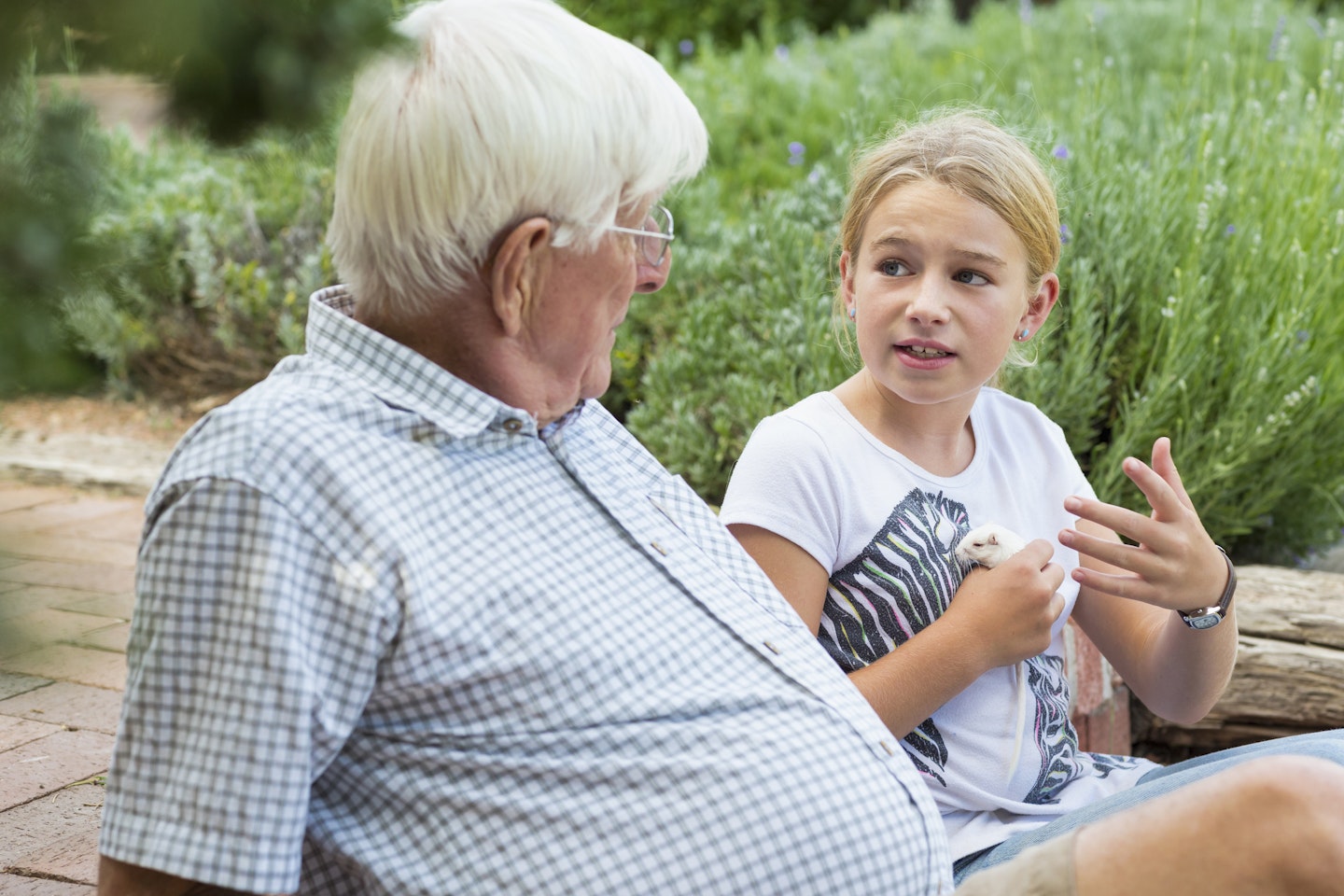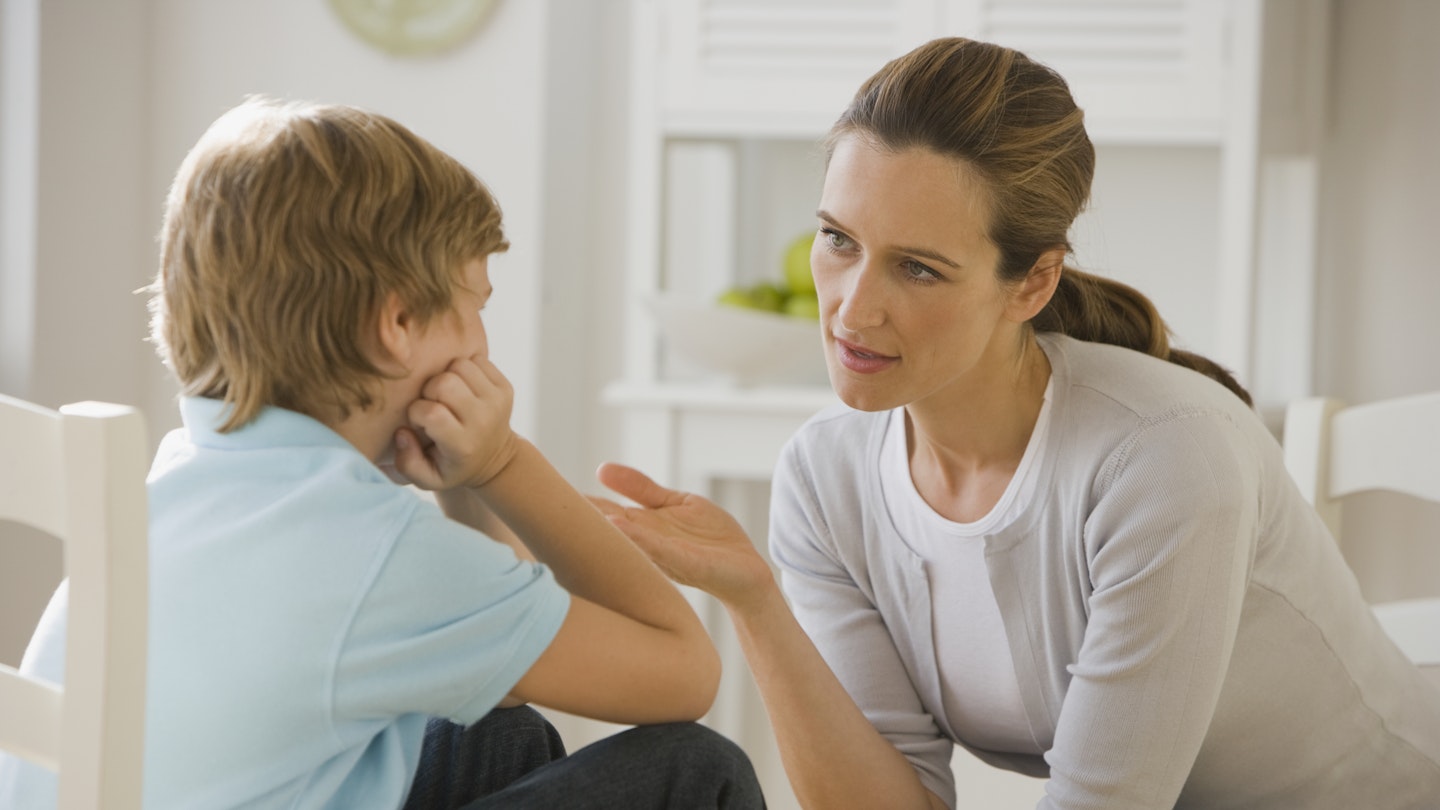It can also be hard as a parent to know how much you should explain to your child about the disease, as you naturally want to protect them from difficult and confusing situations.
However, it is very important to explain what is happening, as children are often aware of tension and difficult atmospheres, so it can be reassuring for them to understand the situation.
We teamed up with Alzheimer’s Society to give you some advice on how to speak to your child about someone close to you who has dementia.
Scouts partnership with Alzheimer’s Society: A Million Hands
With one in three people knowing someone with dementia, Alzheimer’s Society are urging more young people to learn and understand about the condition.
A Million Hands - a partnership between Alzheimer’s Society and Scouts - works with 500,000 young people across the UK in aims of continuing to build a dementia-friendly generation.
Learning about dementia can make it easier for young people to cope and understand, whilst improving the life of the person living with the condition.
Scouts have been attending Alzheimer’s Society services across the country to speak with people with dementia and their carer’s to engage with them and take part in games and activities, to help reduce stigma of dementia.
How to explain dementia to a child:
It is important to be as honest and open as you can, offering clear explanations and plenty of reassurance.
Try to gauge how much detail your child can cope with and tailor the discussion accordingly.
Adapt what you are saying to the age of the child and their level of understanding with similar matters.
**Remember: **With dementia it is also helpful for children to know that the disease can affect a person’s behaviour and therefore it is not their fault, but also to cope with understanding the reality of what is going on.
Make sure they feel comfortable enough to ask questions and know they can share their feelings openly with the people around them who are experiencing the same thing.
These feeling may include:
-
Grief and sadness – what is happening to someone they love?
-
Anxiety – what will happen to the person in the future?
-
Fear, irritation or embarrassment – unusual behaviour in front of other people
-
Boredom – hearing the person with dementia say the same stories and questions time and again
-
Confusion – having to be responsible for someone that used to be responsible for them
-
Loss – if the person with dementia isn’t the same as they once were, or they are now unable to communicate with them in the same way
-
Uselessness or rejection – being unable to help the person to ‘get better’
-
Anger – if other people are under pressure and seem to have less time for the child
-
Guilt – for feeling some of the emotions listed above

What to talk about
It may help to give your child time to express their feelings and talk about changes which are affecting the whole family.
You could also suggest they speak to their friends about the changes happening in their life, so that they understand too.
Here are some tips to discuss the situation effectively:
-
Explain what’s happening as clearly and calmly as possible
-
Use simple examples of behaviour that might seem strange, e.g. the person with dementia forgets where they are
-
Be patient and encourage your child to ask questions if they don’t understand
-
Listen to what your child has to say and how the situation is making them feel
-
Give them plenty of reassurance and don’t be afraid to use humour if it feels appropriate, this often helps to make the situation seem less daunting for your child
It is also important to help your child understand that what you and everyone else is doing to help the person with dementia, it will not cure Alzheimer’s, but it will help the person you love.
For more information and advice on how to explain Alzheimer’s to your child, visit the Alzheimer’s Society website.
Rachel Sheridan – Scout and Community Impact Leader, 15-years-old
Rachel has become a Dementia Friend - a person who helps to spread awareness about the condition and visits and talks with people living with it.
“There can sometimes be a feeling that young people don’t care about wider social issues,” Rachel explains.
“However, I think Scouts working with Alzheimer’s Society through the ‘A Million Hands’ partnership is an amazing opportunity to help challenge that perception.
“My own grandad had dementia so I have seen first-hand how much the condition can affect not only the person themselves but also their family and friends.”

She adds: "The one thing I’d change in my community would be the sometimes lack of understanding between different groups, especially between teenagers and the elderly.
“If we had a more cohesive community, I think it would it easier for us to talk about and tackle issues together”
Alzheimer’s Society and Scouts are helping to build a dementia-friendly generation as part of the A Million Hands initiative. Find out more at www.alzheimers.org.uk/youngpeople and www.amillionhands.org.uk.
A Million Hands will be celebrating it’s 1 year anniversary during Scouts Community Week 22nd to 30th October.
